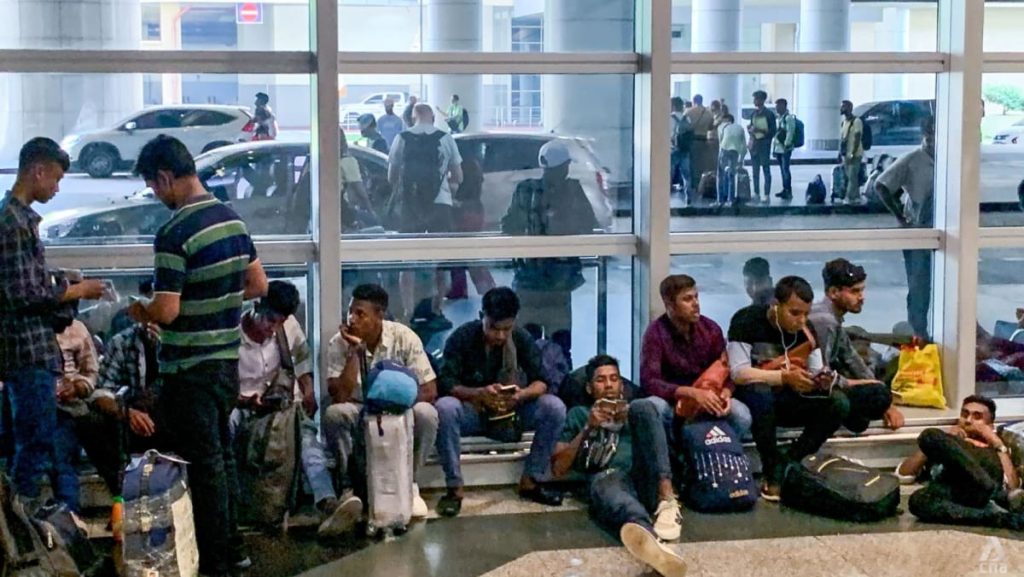Bangladeshi worker Habib faced a seven-hour delay due to immigration issues at Dhaka airport before finally arriving at Kuala Lumpur International Airport. Despite the delay, he expressed gratitude for making it to Malaysia before the deadline. Habib found the immigration process to be fast and efficient, allowing him to continue working in Malaysia. He had previously worked in the country for seven years but was forced to return to Bangladesh in 2020 due to the end of his contract and the onset of the COVID-19 pandemic.
Upon arrival, Habib acted as an interpreter for a group of his countrymen who were also planning to work in Malaysia. They were heading to Penang, where Habib had secured a job in the textile industry for a monthly salary of RM1,500. Despite challenges faced by others in obtaining visas and getting flights, Habib considered himself lucky to have made it to Malaysia in time. He raised concerns about those who had already paid to come to Malaysia but were unable to do so due to various issues.
Reports from Bangladeshi news website Kaler Kontho highlighted the challenges faced by recruitment agencies in sending Bangladeshi workers to Malaysia before the May 31 deadline. The Bangladesh Association of International Recruiting Agencies (BAIRA) requested an extension of the deadline to allow over 30,000 approved workers to travel to Malaysia. The association emphasized the financial losses workers would suffer if they were unable to travel as planned. Each worker is estimated to pay up to RM20,000 to various players in the recruitment process, further underscoring the financial burden faced by these individuals.
Malaysian High Commissioner to Bangladesh Haznah Md Hashim explained the rationale behind the May 31 deadline, citing national and border security concerns as the main reasons for the cutoff. She noted the presence of illegal migrants in Malaysia from various source countries, including Bangladesh. The Malaysian government was set to address the issue internally after the deadline, signaling a strong stance on managing the flow of foreign workers into the country. While efforts were being made to ensure ethical recruitment practices, Haznah acknowledged that some aspects were beyond the control of both the Malaysian and Bangladeshi governments.
The recruitment syndicates involved in the process of sending workers to Malaysia were also a point of discussion, with Haznah emphasizing the need for ethical and transparent recruitment practices. Despite efforts to regulate the recruitment process, challenges persisted due to factors beyond government control. The Malaysian government is committed to managing the influx of foreign workers in a manner that upholds national security while also ensuring fair treatment and protection for migrant workers. The struggles faced by Bangladeshi workers attempting to make it to Malaysia underscore the complexities involved in the recruitment and migration process for foreign workers.


